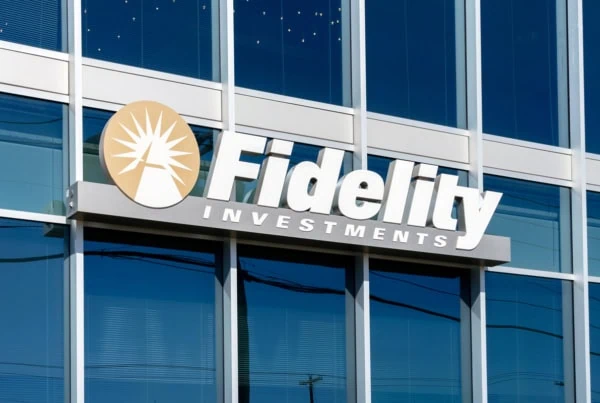Possibly the most talked about and controversial of the generations, Millennials have been accused of everything from killing the economy to being addicted to their screens to being lazy and debt-ridden. While it’s true that the Millennial generation has coincided with several declining industries and other negatives like poor income growth, the reasons for these issues are far more complex than catchy Millennial caricatures indicate.
So, what is the truth about Millennials? Are Millennials simply lazy debt-holders looking for a handout or a generation hindered by rising costs, stagnant wages, and ballooning student debt?
We discuss relevant Millennial spending habits and income statistics to know this year.
Table of Contents
Who Are Millennials?
Millennials, also known as Generation Y or Gen Y, are the cohort born following Generation X and preceding Generation Z. The generation is typically defined as those born between 1981 and 1996, although sometimes those born into the early 2000s are included.
Millennials are typically the children of Baby Boomers and Early Gen Xers. They have been described as the first generation to grow up in the age of the Internet and technological advances that have led to the widespread use of cell phones and social media.
Unfortunately, the Millennial generation has experienced significant economic disruption since reaching adulthood and starting their working lives.
The Great Recession and the disruption caused by the Covid-19 pandemic, as well as stagnant income growth, rising inflation, and significant student debt, have significantly impacted Millennials’ ability to build wealth and achieve the same milestones as those of prior generations.
How Many Millennials Are There?
Believe it or not, Millennials have now surpassed Baby Boomers as the largest adult generation living in the United States.
As of July 1, 2019, estimates from the U.S. Census Bureau showed 72.1 million Millennials compared to 71.6 million Boomers and 65.2 million Gen Xers, who are also expected to outpace Boomers by 2028.
The reasons for this overtaking are twofold. First, the Millennial generation has continued to grow in the United States due to immigration.
Second, Baby Boomers, the generation resulting from the boom in U.S. births following World War II, are continuing to age, and their numbers are shrinking as Boomers begin passing away.
How Well-Educated Are Millennials?
Millennials are known as the generation burdened by student debt, so it would follow that Millennials are generally well-educated.
However, millennials aren’t just well-educated; they are the best-educated generation in history, with fully a third (34%) of Millennials holding at least a bachelor’s degree.
At the same time that the number of those with a college education has grown, the value of that education has also increased.
Unfortunately, the growing economic return of a college degree and an increase in those with them have not resulted in Millennials earning more than earlier generations.
The median earnings of Millennials ($35,000) aren’t much different than that of Boomers ($34,883) or Gen Xers ($32,173).
Despite the stagnation of wages, Millennial college graduates outperform their peers with less education on virtually every measure of economic well-being. The disparity between college graduates and those with a high school education or less has never been more significant.
What Do Millennials Spend Money On?
Millennials have a reputation for spending unnecessarily and splurging on entertainment compared to older generations, but these money habits may be more indicative of the times we’re living in.
Millennials spend more on convenience, online shopping, eating out, experiences and travel, streaming services, debt, and social impact by donating and buying from socially responsible brands.
On the flip side, Millennials spend less on cars, clothes, housing, and retirement than previous generations.
Related: Best Credit Cards for Students with No Credit
Do Millennials Have Good Money Habits?
Data on Millennials has shown that, on average, this generation has been slower to reach milestones than prior generations.
However, these delays have not primarily been due to poor money habits but rather a life full of consistent setbacks, which have stalled Millennial spending power.
Contrary to popular belief, Millennials spend their money on the same things that other generations did; they just have less of it and have had to pay more for necessities. Housing is the number one cost, followed by groceries and debt.
Overall, Millennials have started saving earlier for major financial goals like retirement and now represent the largest cohort buying homes.
Related: Alarming Data Privacy Statistics, Trends and Facts
How Do Millennials Compare to Previous Generations?
Millennials are different from prior generations in several ways. Millennials are more highly educated than earlier generations but earn less, hold fewer assets, and have less wealth at the same age as Boomers and Gen Xers.
The main reason for this difference is the burden of student loan debt and incomes that have not kept pace with rising costs.
How Millennials Spend Differently Than Baby Boomers
Millennials spend quite differently than Baby Boomers in two significant ways. They spend money based on their values and focus more on health and wellness than prior generations.
Most Millennial consumers (73%) are willing to pay more for products and services that promote social responsibility or are environmentally friendly and are more than twice as likely to make sustainable investments.
Furthermore, 9 out of 10 Millennials believe it’s important to eat healthily and are more concerned about natural and ethical food products. Millennials also account for more than half of organic food consumption.
Millennial Spending Habits
Here are the top Millennial spending habits statistic to know this year.
1. On average, Millennials will have spent nearly $93,000 on rent by the time they reach 30
The reason more Millennials aren’t homeowners is simple; they can’t afford it. Burdened by student loan debt and cost of living, most Millennials choose to wait for significant life events like getting married, having children, and buying a house.
Combined with high rent, these factors mean that Millennials carry a heavier rent burden than prior generations. (Source: RentCafe)1
2. Millennials spend $164 a month on entertainment, on average
Much has been made of Millennial consumers and their spending habits, but overall, Millennials tend to spend more money on experiences rather than things.
However, while Millennials outspend their Boomer and Gen Xer counterparts in the area of entertainment, they do not tend to curb spending in other areas to better afford experiences. (Source: McKinsey)2
3. 41% of Millennials spend more on coffee than retirement
A survey conducted by Acorns found that 41.26% of Millennial respondents said they’d spend more on coffee over the previous year than they had saved for retirement.
While Millennial spending habits have been a source of controversy over the years, there is a tendency to splurge on items like coffee. (Source: Acorns)3
4. Half of Millennials order take out 2 or 3 times a week
The pandemic has encouraged distancing and supporting local businesses, but that has not affected Millennials’ preference for eating out. Millennials have continued to eat out 2 or 3 times a week, even during the pandemic. (Source: The Guardian)4
5. Around 54% of Millennial spending happens online
Millennial shoppers are digital buyers, with over 86% of Millennial consumers making purchases online. Furthermore, 67% of Millennials say they prefer shopping online to in-store. (Source: Invesp)5
6. 42% of Millennials shop online from their smartphones
Not only do Millennials like to shop online, they like to shop on the go. Nearly half of Millennials complete online purchases using their smartphone. (Source: Statista)6
7. 52% of Millennials prefer to shop at stores that align with their values
Millennial consumer behavior is closely aligned with their values and beliefs. As a socially responsible generation, Millennials spend on brands and products that promote sustainability and social justice. (Source: Euclid)7
8. Millennials spend an average of $47,112 a year
On average, Millennial spending totals around $47,000 a year. The highest ticket items for Millennial spending include rent/housing, eating out, and apparel and services. (Source: BLS)8
9. Millennials have an average of $100,906 in debt
The average consumer debt for an individual is $96,371, and for those in the Millennial age group, the number is almost as high.
An analysis by Experian found that the average credit card debt was $5,221, the average student loan debt was $39,487, the average auto loan debt was $20,987, and the average personal loan debt was $17,064. (Source: CNBC)9
Related: Best First Time Credit Cards [Beginners’ First Time Credit Cards]
10. Millennials had the second-highest debt growth any generation from 2020 to 2021
Older millennials spending habits have begun shifting toward buying houses and starting families, and thus we’re seeing an increase in their overall debt.
The only age group with a higher debt growth from 2020 to 2021 was Gen Z, which grew 29.7% compared to Millennials at 15.4%. (Source: CNBC)9
11. For non-homeowning Millennials, 60% say student loan debt is delaying their ability to buy
Student loan debt has affected Millennials more than any other age group thus far, and the majority of them are citing student loans as the main reason they can’t buy a house.
Many Millennials must choose between saving for retirement, starting a family, or purchasing a home. (Source: NAR)10
10. 60% of Millennial consumers prefer to purchase generic brands if it saves them money
Millennial spending power is diminished compared to prior generations, and so many Millennial shoppers look to save money by buying generic over name brands. (Source: Adage)11
11. 37% of Millennials are willing to purchase and product or service to support a cause they believe in, even if they have to pay more
While they do look for ways to save money, it’s also true that Millennials spend their money with brands that align with their values.
Thus, Millennials will shop for products and services that help support socially responsible causes even if it costs them more. (Source: Millennial Marketing)12
12. Millennials and Gen Z make up 40% of all luxury spending and 100% of global luxury growth
Despite the financial constraints of the generation, Millennial buying habits are beginning to move toward the luxurious.
Millennials are becoming the most valuable luxury consumer segment, and luxury brands are transforming their traditional business models to accommodate more purchases online and other Millennial spending habits. (Source: Luxe)13
13. Millennials are willing to pay more for items that are popular or offer a unique experience
Millennials surpassed Baby Boomers long ago regarding spending money on experiences.
Charles Schwab found that 60% of Millennials were willing to pay more than $4 for a cup of coffee compared to 29% of Baby Boomers.
Furthermore, 79% of Millennials said they would spend more money to dine at a popular restaurant. (Source: Charles Schwab)14
14. Millennials make up 21% of consumer discretionary spending
Millennials have tremendous spending power estimated to be at over 1 trillion. (Source: Millennial Marketing)12
15. Millennials tend to spend less on discretionary items than other generations
A study by Equifax found that Millennials spent less on wants in 3 out of four categories compared to Gen Xers and Baby Boomers. They found that Millennials spent nearly $1,500 less on average on entertainment than the other two generations. (Source: Equifax)15
16. 83% of Millennials say a brand’s sustainability practices influence their decision to shop with them
Millennials are far more likely to shop according to their values and beliefs than other generations. If a brand targets Millennials, they must have socially responsible and sustainable practices. (Source: Business Wire)16
17. 25% of Millennials expect a customer service response within 10 minutes on social media, and 30% expect a same-day response via text
Millennial buying power is at an all-time high, and brands must be able to attract and retain them. One of the best ways to satisfy Millennials is through quick and helpful customer service. This tech-savvy generation wants answers, and they want them fast. (Source: VocalCom)17
18. 90% of Millennials highly value a good work-life balance
Millennials are motivated primarily by their values and by experiences, and while they are also career-oriented, Millennials understand that work isn’t everything.
Millennials seek success in their careers and personal lives, thus placing a high value on employers that help create a good work-life balance. (Source: Resource Solutions)18
19. Millennial men who work at home have spent more online shopping than Millennial women
One of the more interesting Millennial shopping habits to come out of the pandemic and the trend of working from home is which gender shops online the most.
While one might assume that Millennial women would spend more on online shopping, statistics show that Millennial men actually spend more online. (Source: WYPR)19
Related: Best Online Jobs for Teens
20. 65% of Millennials improved their finances during the pandemic
(Source: WYPR)19
Related: Best Brokerage Account Sign-Up Bonuses, Promotions and Deals
21. 29% of Millennials purchase from brands after seeing them on social media
(Source: Global Web Index)20
22. 48% of Millennials would make a purchase because of free delivery
(Source: Global Web Index)20
Millennial Population
23. Millennials are now the largest living generation at 72.26 million
Generation Y has now surpassed the Baby Boomer generation as the largest in the U.S. Baby Boomers currently total 70.68 million, Gen Xers total 64.95 million, Generation Z totals 67.06 million, and the Silent Generation totals 21.78 million. (Source: BLS)21
24. Millennials made up nearly 22% of the population distribution in the U.S. in 2020
Gen Y is now the largest generation, largest adult population, and the largest consumer group in the U.S. (Source: Statista)22
Millennial Income Statistics
25. Median Millennial pre-tax household income was $71,566 in 2020
According to the U.S. Census Bureau, the median household income for Gen Y was $71,566 in 2020. (Source: U.S. Census Bureau)23
Related: Income Generating Assets [Best Assets to Invest In]
26. The average 40-year-old head of household Millennial earns $73,000 annually
While Millennials at the age of 40 make around the same money as Baby Boomers ($72,000) and Gen Xers ($68,000) did at the same age, the stagnation of wages means that when adjusted for inflation, Gen Y wages fall far behind the two prior generations. (Source: Bloomberg)24
Related: Ways to Make Money as a Teen
27. Millennials earn 20% less than Boomers did even though they’re better educated
Median earnings for those aged 18 to 34 are lower than they were in the 1980s largely due to the Great Recession and the rise of contract positions and freelance positions that may offer fewer hours and pay.
Additionally, nearly 40% of Millennials between 25 and 37 have at least a Bachelor’s degree compared to 25% of Boomers and 30% of Gen Xers at the same age. (Source: CNBC)25
Related: Best Investing Apps for Teens
28. Half of Millennials have a side hustle
Millennials are the most likely generation to have a side hustle, followed by Gen Z at 46%. (Source: SunTrust)26
Related: How to Start Investing as a Teen
29. Millennials make nearly $11,000 annually from side hustles
Millennials make the most on average from side hustles, earning 20% more than Gen Xers and 46% more than Baby Boomers. (Source: SunTrust)26
30. 19% of Millennials have more than one side hustle
Millennials are also more likely to have multiple side hustles than other generations. (Source: SunTrust)26
31. 29% of Millennial side hustles are in the personal services sector
Most Millennial side hustle jobs are personal services like dog walkers and babysitters. Other top gig jobs include professional services, like writing or graphic design, and arts and crafts. (Source: SunTrust)26
Related:
- Best Credit Cards for Kids
- Best Credit Cards for Teens
- Best Investing Apps for Teens
- Best Investment Apps and Platforms
- Best Investment Apps for Beginners
Millennial Statistics Sources
- RentCafe )
- McKinsey (https://www.mckinsey.com/industries/retail/our-insights/cracking-the-code-on-millennial-consumers)
- Acorns (https://grow.acorns.com/about-half-of-workers-think-they-dont-earn-enough-to-save-for-retirement/)
- The Guardian (https://www.theguardian.com/commentisfree/2021/oct/25/the-spending-habits-of-avocado-toast-millennials-are-more-complex-than-you-think)
- Invesp (https://www.invespcro.com/blog/millennial-online-shopping-habits/)
- Statista (https://www.statista.com/statistics/518925/online-shopping-device-share-age/)
- Euclid (https://martech.org/report-52-of-millennials-want-retailers-to-mirror-their-values/)
- BLS )
- CNBC (https://www.cnbc.com/2021/11/09/how-much-debt-millennials-have-on-average.html)
- NAR (https://www.nar.realtor/newsroom/student-loan-debt-holding-back-majority-of-millennials-from-homeownership)
- Adage )
- Millennial Marketing (https://millennialmarketing.com/who-are-millennials/)
- Luxe (https://luxe.digital/business/digital-luxury-speakeasy/millennials/)
- Charles Schwab (https://www.aboutschwab.com/schwab-modern-wealth-index)
- Equifax (https://resources.datadrivenmarketing.equifax.com/dyks-equifax-ddm/millennials-that-are-likely-to-spend-big-on-discretionary-items)
- Business Wire )
- VocalCom (https://www.vocalcom.com/blog/5-things-millennial-customers-want-from-your-brand/)
- Resource Solutions )
- WYPR (https://www.wypr.org/show/clearpath-your-roadmap-to-health-wealth/2021-11-30/the-financial-outlook-of-millennials-during-covid-19)
- Global Web Index (https://www.gwi.com/reports/millennials)
- BLS (https://www.statista.com/statistics/797321/us-population-by-generation/)
- Statista (https://www.statista.com/statistics/296974/us-population-share-by-generation/)
- U.S. Census Bureau (https://www.census.gov/library/publications/2021/demo/p60-273.html)
- Bloomberg (https://www.bloomberg.com/features/2021-millennials-are-running-out-of-time/)
- CNBC (https://www.cnbc.com/2019/11/05/millennials-earn-20-percent-less-than-boomersdespite-being-better-educated.html)
- SunTrust (https://media.truist.com/2019-08-27-SunTrust-Survey-Many-Americans-Interested-In-Taking-Their-Side-Gigs-Full-Time)
Related:






